20 Ideas to Produce More and Consume Less

This post contains affiliate link. See our disclosure policy for more information.
Our post WW2 society is all about consuming. From birth we are taught to buy, buy, buy and want, want, want, but I think a lot of people are getting tired of that song and dance and are really starting to look back a few generations to learn how to do things differently. I believe we were created to be doers and makers, using our hands to create instead of just to click, buy and consume. All this buying and consuming is leaving people empty and wanting more.
There is something so calming and peaceful about creating something with your hands whether that means kneading bread dough, planting seeds, crocheting a scarf or building a shelf. I personally try to do as much as I can for myself and am always wanting to learn new skills. I think it’s smart to know how to do as many things for yourself as you can and therefore depend less on others. Today, I’m sharing with you a few simple ideas on how to produce more and consume less.
Grow a Vegetable Garden
Growing your own food is a basic fundamental that I believe everyone should know how to do. You don’t have to grow a huge garden, but do what you can and let that be enough. The more food you produce yourself, the less you will be dependent on others to feed your family. Check out my list of tips for beginner gardeners here.
Plant Fruit Trees and Bushes
Most people have room in their yard or landscaping to plant an extra tree or bush so why not plant one that yields a harvest for your family year after year? Fruit trees and bushes require little maintenance and yield big harvests. If everyone who had the space planted a couple of fruit trees and preserved the harvest each year, just imagine how much less we would all be dependent on our strained food system?
Learn to Save Seeds
If you want to produce more and be less dependent on stores, then you’ve got to learn how to save your own seeds. The more you can do this the more you will truly become self-sustaining in the garden each year.
Preserve Your Harvest
Growing your own food is one thing, but you really need a plan for how to preserve the abundance and make it last through the winter months. Freezing, canning, fermenting and dehydrating are the most common methods. See below for some recipes to get you started.
Also, I recommend The All New Ball Book Of Canning And Preserving: Over 350 of the Best Canned, Jammed, Pickled, and Preserved Recipes for a complete guide to preserving!
Oven-Roasted Cherry Tomato Sauce
How to Make Dehydrated Apple Rings
Learn to Hunt or Fish
Providing meat for the family in the form of hunting and fishing is not only healthy, but better for the environment than purchasing commercially raised meat. Past generations used to do this a lot more to help supplement their food bill and put dinner on the table.
Keep Chickens
It has been said that chickens are the gateway animal into farming. I think it’s true because chickens are so easy to keep and take up minimal space. Even someone in an urban environment could keep a couple of hens in the backyard and reap the benefits of eating healthy, farm fresh eggs. Chickens will also keep your bug population down and provide you with free fertilizer for your garden.
Cook as Much as Possible from Scratch
The less you need to buy from the grocery store, the less you will depend on it. Being able to cook your own convenience items from home from basic items such as flour, sugar, yeast, eggs, etc. puts you at an advantage over the person who buys all things prepackaged. Plus, cooking from scratch tastes way better that store-bought and it’s cheaper! Check out this list of recipes to get started.
Make Your Own Rags/Cleaning Cloths
There’s no need to purchase cleaning cloths when you can cut up old t-shirts to use instead. This not only will save you money, but it’s better for the environment than purchasing store-bought.
Use What You Already Have
Modern society says, if you need something, go buy it, but what if you took the time to stop and look at what you already have? Chances are, you don’t actually need to buy anything because you have it already or you have something that will work just as well instead. Having the “use what you already have” mindset will save you money and time. Plus, it will keep you out of the store.
Borrow from a Friend or Neighbor
If you can’t find what you need at home, consider asking your friends or neighbors if you could borrow the item before buying a new one. Most of the time, we only need an item for one project or a short period of time so you might as well just borrow and return it to your neighbor if you can!
Barter for Something You Need
Bartering is an excellent way to get goods or services that you might need in exchange for your own goods and services. Consider all of the resources and talents you have and compare them with your friends and neighbors. Maybe you could barter eggs for fresh vegetables or hair cuts for music lessons? The possibilities are endless.
Learn to Sew, Knit or Crochet
Learning to produce your own goods in the form of sewing, knitting or crocheting is an excellent life skill to have, plus it’s fun! If you don’t have these skills, consider asking a friend to teach you or watch YouTube videos and teach yourself. You can also take online classes from Craftsy. Being able to turn yarn or fabric into all manner of things is great for making frugal gifts and also good for selling to make some extra cash.
Learn to Mend Clothes
Mending seems to be a lost skill these days, but taking the time to sew on a button or fix a ripped seam will give you much more bang for you buck when it comes to your wardrobe or decorating for you home. These skills are easy to learn and will also give you sense of satisfaction when you can repair an item instead of throwing it out and buying a new one.
Learn to Live on Less
One of the best pieces of advice I can give about consuming less is simply learning to live on less. Look at your expenses and see what you could cut back on or even cut out of your budget. Are you paying for any subscriptions or services that you aren’t currently using? Would you consider downsizing to a smaller house or to a one car family? Being creative in this way will give you more money and freedom to do what you want.
Buy Used When You Need Something
If you find that you really are in need of a certain item, make a habit of trying to find it used if you can. Thrift stores are FILLED with all manner of things for a fraction of the retail price. You can also find practically anything you need secondhand on Facebook, Craigslist or Ebay.
Learn to Make Your Own Music
Before radios and digital media came along, people had to make their own music for entertainment. Do you know how to play a guitar or the piano? Can you sing? Given the opportunity, I bet you would be surprised at the beautiful music you could make with your family and friends if you had the desire. Plus, it gives you a skill and great creative outlet that doesn’t cost a thing.
Check out Books from the Library
If you have access to a good public library, then there is no need to purchase books all of the time. Library cards are free and you can recheck the same books over and over if you have the need or desire. You can also check out audio books, magazines and DVDs.
Learn to Go Without
Another great way to consume less in our society is just to learn to go without. You don’t need all of the goods and services that you think you do to survive in this life. The less you need, the more time and energy you will have to use on the things that you actually love.
Make Homemade Cards and Bookmarks
Creating your own cards and bookmarks from scrap paper or other odds and ends that you might have is a great way to use your hands to produce more. Kids love working on these kinds of projects and could even make sets to give as gifts.
Find Ways to Waste Less in the Kitchen
We waste a lot of food and money in the kitchen. The more you use what you already have and don’t let things go to waste, the less you will need to buy. Check out the following posts to learn some practical tips.
30 Simple Ways to Save Money in the Kitchen
What would you add to this list? I’d love to know!
Other posts you might enjoy:

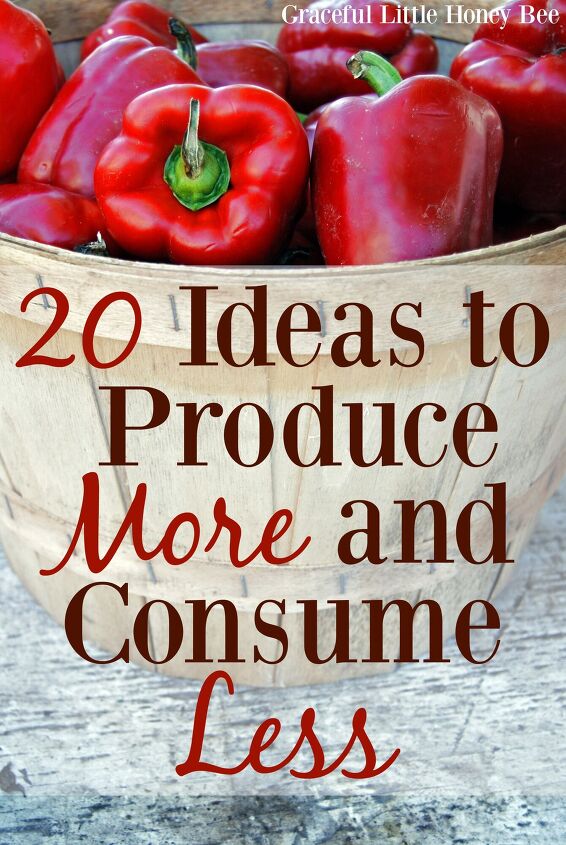
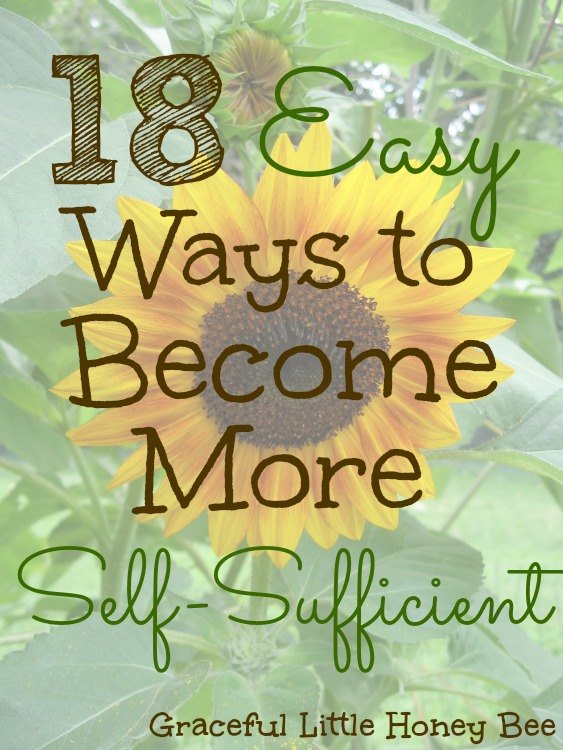


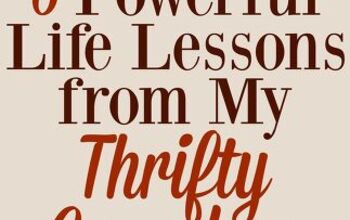
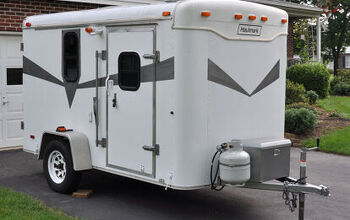

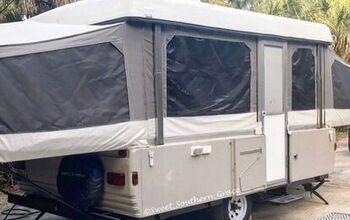


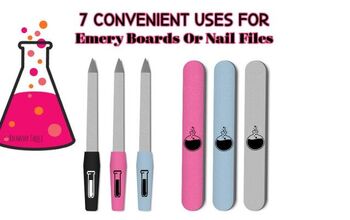



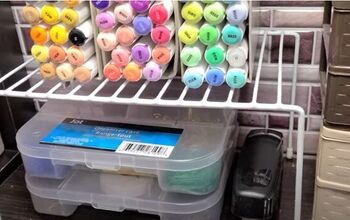


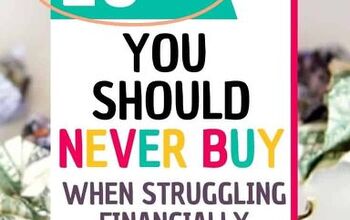

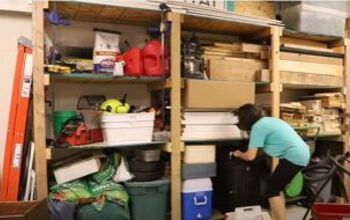

Comments
Join the conversation